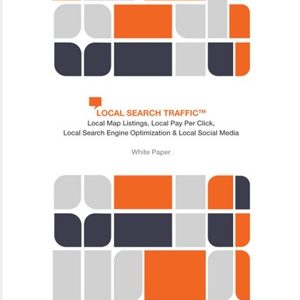
The real estate industry is highly competitive, especially in major cities. From the solopreneur trying to make ends meet to the massive national conglomerates, everyone is out to do whatever they can to increase their visibility and secure those listings.
Fortunately, in the digital realm, you don’t have to compete with hundreds of thousands of other real estate agents. Since the area you serve is hyperlocal, your competition is limited to others in that same hyperlocal area.
Of course, depending on the location, the competition may still be fierce, even among small businesses. But using local SEO can give you a fighting chance—if you know what you’re doing. What follows are 10 tips to improve your real estate website so that it can dominate local search.
1. Start with an SEO Audit
Before you can figure out where you’re going, you need to figure out where you are. An SEO audit helps determine which pages are doing well and where improvements can be made. Though performing an audit can be time-consuming, it serves as a benchmark for progress and provides the information needed to create a roadmap.
Focus on key areas such as:
- Site Structure: XML sitemap, robots.txt, redirects.
- Page Structure: Titles, meta descriptions, heading tags, alt tags, URLs.
- Content: Structure, keyword and link placement, visual elements, duplicates, redirects, and canonical tags.
- Links: Outbound and inbound links, interlinking with other pages on your site, broken links.
- Usability: Accessibility, mobile-friendliness, site speed.
Improving these areas should increase your organic traffic. Use Google Analytics to identify the pages needing the most attention, and Google Search Console to find and fix issues.
2. Optimize for Search
With your audit results in hand, create a plan to address the issues systematically to ensure nothing is overlooked. Focus on:
- Keyword research and analysis
- SEO-friendly URLs
- Optimization of titles and meta descriptions
- Image optimization
- Proper outbound and internal link placement
- Broken links
- Redirects
- Site speed optimization
- Content optimization
- CTR and bounce rate optimization
- Schema
- Robots.txt
- XML sitemap
- SSL certificate
- W3C validation
3. Make Sure Your Website Is Accessible
Everyone, regardless of disability, deserves to access the internet with ease. Make sure your website is built with accessibility in mind to prevent user experience from suffering. This includes ensuring compliance with guidelines such as providing alt text for images, using clear navigation, and ensuring content is readable and navigable via screen readers.
4. Optimize for Mobile Devices
More than half of global internet traffic comes from mobile devices. To keep both Google and your potential customers happy, your website needs to function smoothly on smartphones and tablets. Focus on:
- Responsive design
- Page speed
- Hosting speed
- Homepage
- Site navigation
- Site search
- Forms
- Conversions
- Usability
The Mobile-Friendly Test tool can help you identify issues that may affect performance on mobile devices.
5. Add Your Site to Google My Business & Other Relevant Directories
A big part of local SEO focuses on local citations. List your site on Google My Business and keep your profile up to date. Also, consider other directory websites relevant to real estate. Complete as much of your profiles as possible with accurate, consistent information.
6. Get Social
Social media helps connect with your target audience, increase exposure, build trust, and drive traffic to your website. Focus on platforms like Facebook, Instagram, Twitter, and Pinterest to share blog content, videos, statistics, news, and more. Use local-focused hashtags and geo-targeted keywords in your posts.
7. Publish Useful Content on Your Blog
A blog on your website gives you additional opportunities to target relevant keywords. Your blog should include a mix of informative articles about your neighborhood, visual content like images and video tours, and interviews with local business owners. Optimize all content for search engines by including relevant geographic keywords.
8. Create Video Content
Invest in creating and optimizing video content to distinguish yourself from the competition. Consider launching and optimizing a YouTube channel, consistently uploading videos, and running live streams. Optimize video content for local search by adding geo-targeted keywords to headlines, descriptions, and hashtags.
9. Use Structured Data Markup
Structured data markup helps search engines understand the content on your page and can enable your site to display rich snippets in search results. Real estate businesses can benefit from various types of schema, such as RealEstateAgent, Product, and Residence. Validate your structured data with the Structured Data Testing Tool.
10. Try to Earn Featured Snippets
Featured snippets can significantly boost your visibility and traffic. To earn them, focus on creating high-quality, structured content that answers specific queries, especially those that don’t already have a featured snippet. Use question-focused headers, short paragraphs, tables, lists, and images to increase your chances.
Summary
Despite the fierce competition in real estate, there are still plenty of opportunities. Using these SEO tips will help you dominate local search. Investing in SEO can help you rank well, even against big names in the industry. If you’re not familiar with SEO, consider consulting or hiring a professional to avoid mistakes.
More Resources:
- Local SEO: The Definitive Guide to Improve Your Local Search Rankings
- A Complete Local SEO Checklist
- Citations & Local SEO: The Ultimate Beginner’s Guide
Image Credits:
All screenshots taken by the author, October 2020



